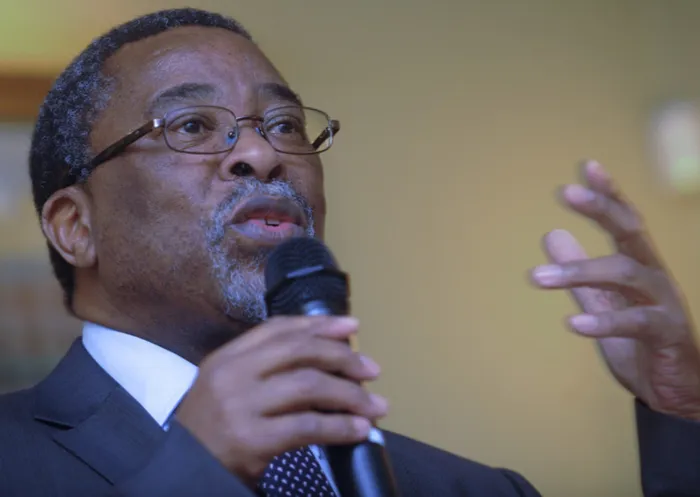ANC in power too long - Mbeki

Cape Town 110923- Political analyts Moeletsi Mbeki speaking at Cape Town club. Picture Cindy waxa.Reporter Business Report Cape Town 110923- Political analyts Moeletsi Mbeki speaking at Cape Town club. Picture Cindy waxa.Reporter Business Report
South Africa was suffering from the “20-year itch” where its liberation party, the ANC, had been in power too long and was making a series of policy mistakes, political economist Moeletsi Mbeki said at the Cape Town Club at the weekend.
The brother of former president Thabo Mbeki said he had developed a reputation of being critical of the government, but he believed the country was not following the lead of its fellow Brics trade bloc countries – Brazil, Russia, India and China – but should in fact join those countries that were flirting with economic failure, the Piigs – Portugal, Italy, Ireland, Greece and Spain.
South Africa’s economic policies were driven by government and household consumption. Consumption made up about 70 percent of gross domestic product (GDP), while China spent only about 30 percent of GDP on consumption and savings levels were at 45 percent, about three times the savings rate in South Africa.
He emphasised that he was not pessimistic about the country as there were good people in opposition parties who could emulate other opposition parties in Africa, many of them built on a groundswell of civil protest, and look to eventually take power.
He pointed out that the Movement for Democratic Change in Zimbabwe started winning elections after 20 years of independence in Zimbabwe – even though Zanu-PF’s President Robert Mugabe had subsequently prevented the majority from taking power. The Patriotic Front had just peacefully ousted the Movement for Multi-Party Democracy in Zambia, the second change of government since independence in 1966.
The failure of the ANC was multi-faceted, he argued, but the electorate was beginning to recognise that it was failing to deliver and voting against it. It hit an electoral support peak of 70 percent in 2004, but was now just 12 points over 50 percent. Even Cope, which “doesn’t have a manifesto” and was wracked with leadership problems, drew 7 percent of the electorate in 2009.
While he did not mention the DA, Mbeki recently addressed an economic forum in Gauteng hosted by the official opposition, fuelling speculation that he may take up a leadership position in the party. Pressed on whether this was likely, he said he was a commentator and observer and did not hold these ambitions. He said instead: “South Africa does have alternatives to the ruling party… there are eight political parties in our Parliament.”
In the euphoria of the post-1994 democratic period, South Africa had opened up its trade markets under then trade and industry minister Trevor Manuel. It did so at the risk of losing millions of jobs. This in fact had happened, with the industrial base of the country declining.
South Africa had lived off the fruits of its mining industry, but infrastructure was breaking down. Richards Bay harbour, for example, had the capacity to handle 93 million tons of coal a year, but rail lines could only carry 63 million tons.
ANC politicians “realise that they will not be in power forever” and “are lining their pockets”, Mbeki said. He added that the party found itself unable to cope with the economic and social demands being placed on it. This translated into factionalism and in-fighting. - Business Report